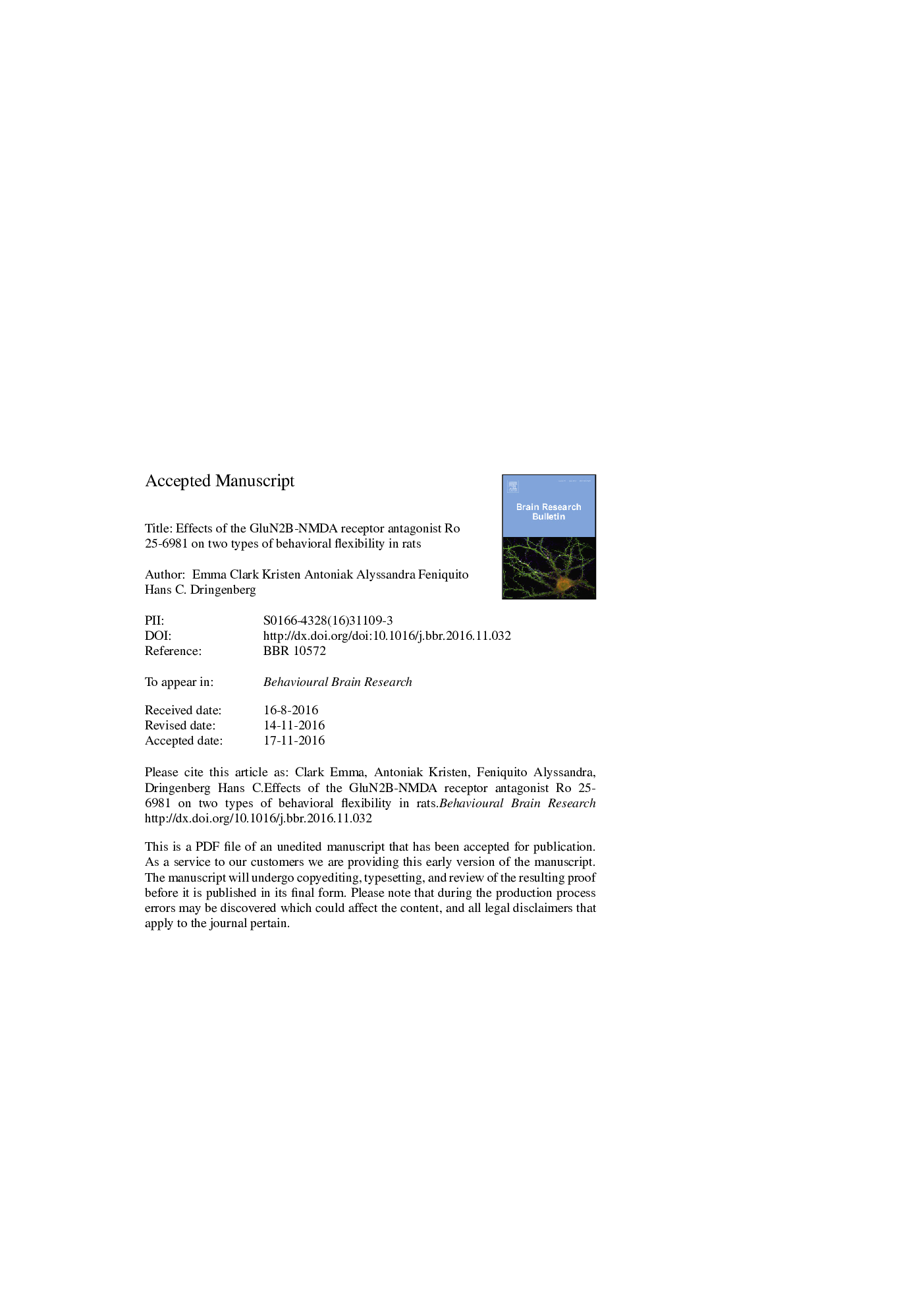| Article ID | Journal | Published Year | Pages | File Type |
|---|---|---|---|---|
| 5735304 | Behavioural Brain Research | 2017 | 29 Pages |
Abstract
Recent evidence has implicated N-methyl-d-aspartate receptors (NMDARs) in several aspects of learning and behavioral flexibility in rodents. Here, we examined the effects of treatment with Ro 25-6981, a selective antagonist of NMDARs containing GluN2B subunits, on two types of behavioral flexibility in rats, spatial reversal learning and set-shifting (spatial vs. motor strategy). To examine spatial reversal learning, rats were trained to swim to a hidden platform in a water maze over four days. On the following day, the platform was moved to a new location in the maze. Administration of Ro 25-6981 (10Â mg/kg) selectively impaired the early phase of reversal learning, but all rats learned to navigate to the new platform location over 12 trials. To examine set-shifting, independent groups of rats were trained to either swim to a fixed location (spatial strategy) or use a motor response (e.g., “turn left”; motor strategy) to find a hidden escape platform in a cross-shaped water maze apparatus; after task acquisition, rats were trained on the second, novel strategy (set-shift) following treatment with either Ro 25-6981 (10Â mg/kg) or saline. Administration of Ro 25-6981 had no effect on the ability of rats to perform the set-shift and use the new strategy to locate the escape platform. These results suggest that, in rats, spatial reversal learning, but not set-shifting, is sensitive to Ro-25-6981 treatment. Thus, NMDARs-GluN2B signaling may play a selective role in some forms of behavioral plasticity, particularly for situations involving the updating of information in the spatial domain.
Keywords
Related Topics
Life Sciences
Neuroscience
Behavioral Neuroscience
Authors
Emma Clark, Kristen Antoniak, Alyssandra Feniquito, Hans C. Dringenberg,
